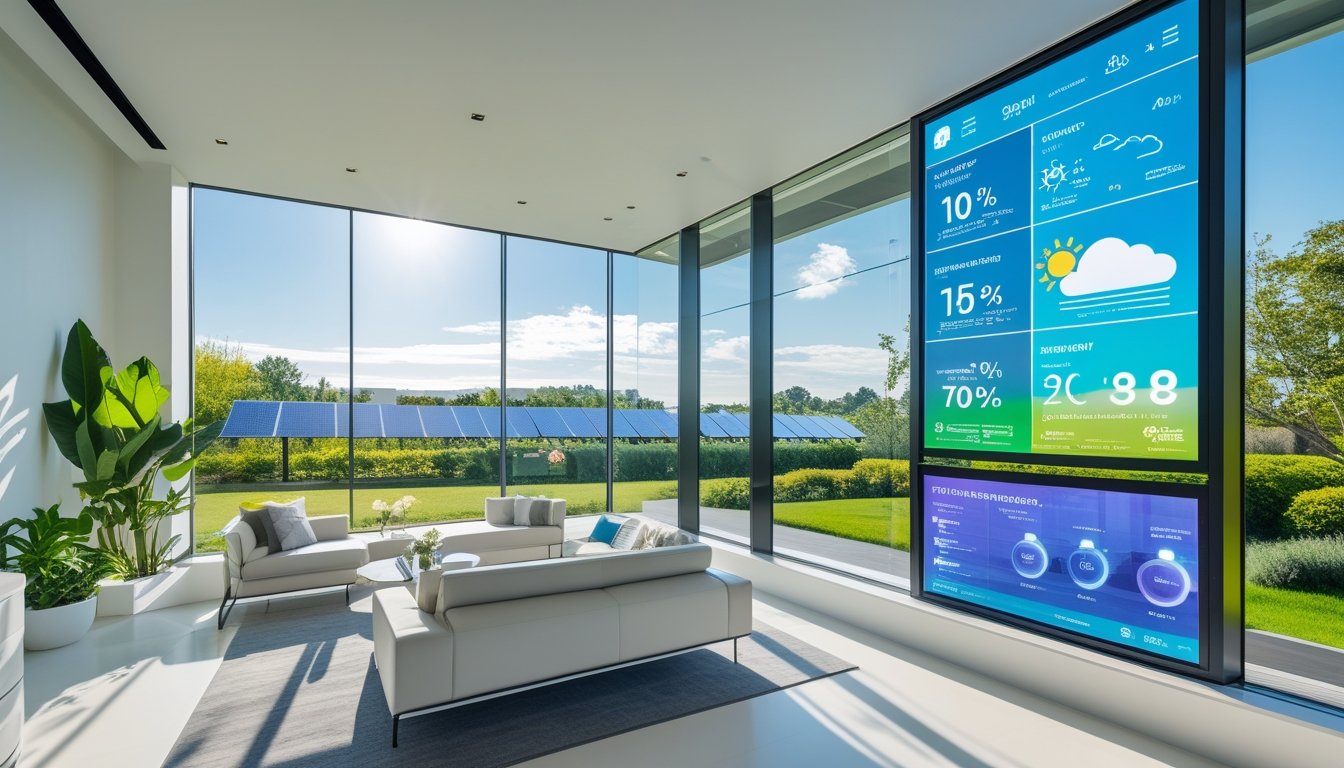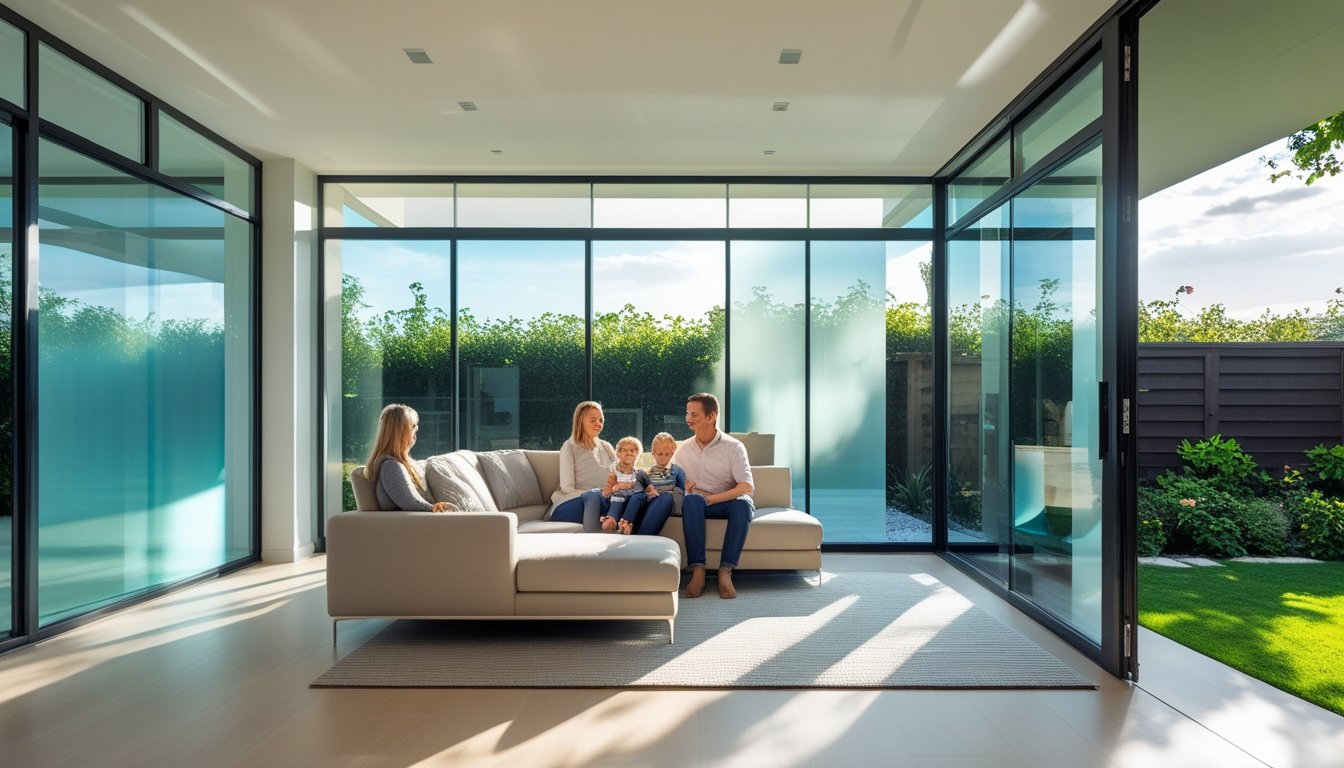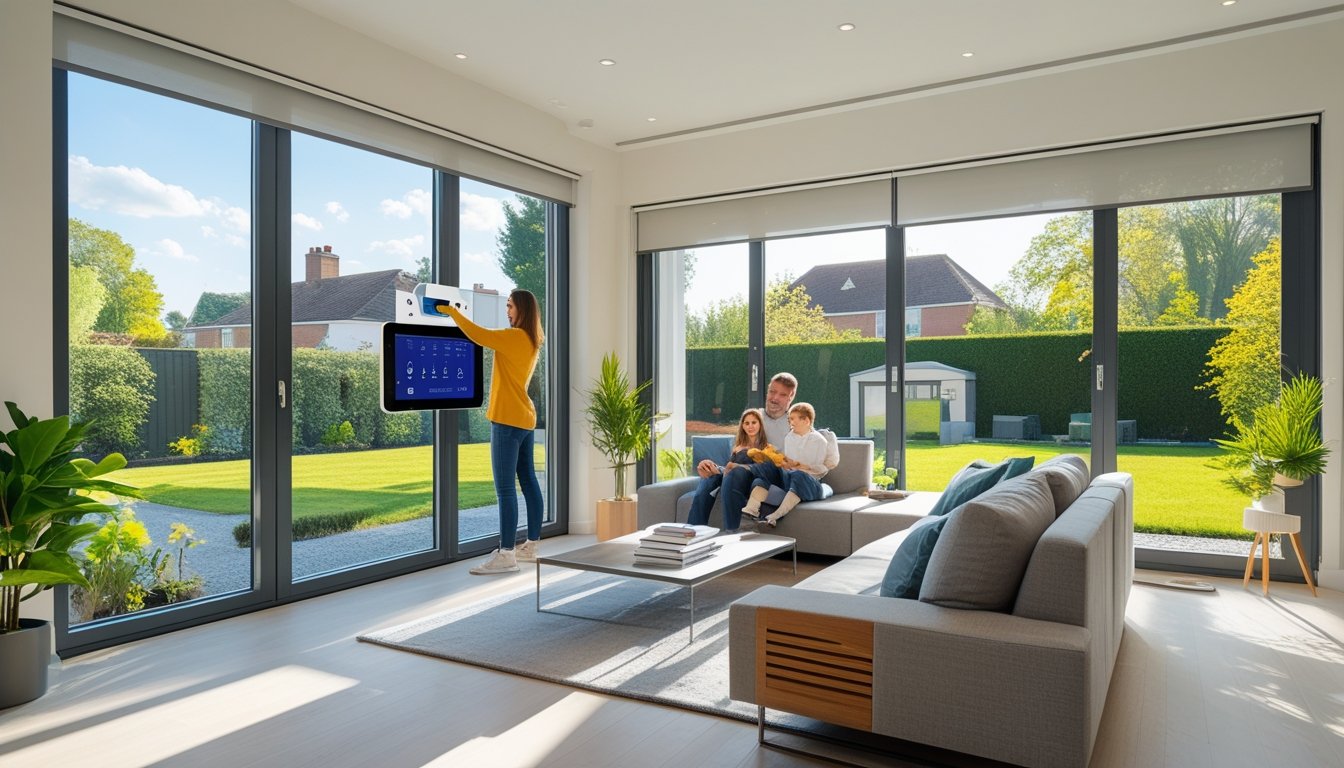Late updated: 15 Sep 2025 08:09
Written by: Oliver Bennett
Future-Proofing Your Home With Smart Windows: Enhancing Efficiency and Comfort
In today's rapidly evolving home design landscape, smart windows have emerged as a key innovation for homeowners eager to adapt to future needs. Smart windows go beyond traditional glazing solutions by integrating advanced technologies that enhance energy efficiency, security, and comfort. By choosing smart windows, we ensure our homes are not only ready for today's challenges but also adaptable for what the future holds.

These windows offer more than just aesthetic appeal. They actively contribute to a home's environmental footprint by reducing heating and cooling demands. This smart technology provides us with a responsive living environment, adjusting to external conditions for optimal comfort, while also bolstering security features. The real transformation lies in the seamless interaction between technology and practicality, offering a blend of convenience and intelligence.
As we explore the potential of smart windows, it's important to consider the value they bring not just to our immediate living conditions but also in increasing the property's overall market value. This comprehensive approach makes smart windows a worthwhile investment for any homeowner looking to future-proof their space.
Key Takeaways
- Smart windows boost energy efficiency and security.
- These windows adapt to external conditions for best comfort.
- Investing in smart windows can enhance property value.
Smart Window Technology for Future-Proof Homes
As the landscape of residential design increasingly prioritises sustainability and adaptability, smart windows emerge as essential components. They are pivotal in enhancing energy efficiency, integrating with smart home technologies, and adapting to changing needs.
How Smart Windows Work
Smart windows utilise advanced technology to optimise light and temperature within the home. These windows incorporate materials like electrochromic glass, allowing the glass to change transparency with an electric charge. This feature empowers us to control the amount of natural light entering our homes, reducing glare while maintaining views.
By modulating light and heat flow, smart windows contribute significantly to energy efficiency. They help manage indoor temperatures, potentially lowering heating and cooling costs. Additionally, some smart windows are designed to be responsive to changes in sunlight, automatically adjusting to block or allow sunlight as needed. This automatic adjustment enhances living comfort while conserving energy.
Types of Smart Window Systems
A variety of smart window systems are available, each offering unique benefits. Electrochromic windows use a small amount of electricity to adjust transparency, providing dynamic control over light and privacy. Thermochromic windows, on the other hand, change their tint based on temperature changes, requiring no power supply.
Suspended particle devices (SPD) consist of microscopic particles within the glass that adjust positions when electrically charged, offering rapid transitions between transparent and opaque states. Polymer dispersed liquid crystal (PDLC) technology presents another option, where liquid crystals are dispersed within a polymer to create privacy while still allowing light diffusion. Each system offers distinct advantages, allowing us to choose based on specific needs and preferences.
Integration With Home Automation
Smart windows integrate seamlessly with evolving home automation systems, playing a crucial role in the smart home ecosystem. By connecting with home automation technologies, these windows can be controlled remotely via smartphones or home assistants, offering us convenience and enhanced control over our living environments.
These windows can work in harmony with other smart home technologies, such as automated lighting and climate control systems. For example, smart windows can automatically adjust their tint in response to changes in room temperature, coordinating with heating and cooling systems to optimise energy efficiency. By incorporating smart window systems, we create homes that are not only technologically advanced but also prepared for future innovations and adaptations.
Benefits and Considerations of Smart Windows

Smart windows are transforming household design by incorporating intelligent features that boost energy savings and bolster security. They promise to balance privacy, comfort, and eco-friendliness while integrating seamlessly with current home improvement technologies like smart locks and renewable energy solutions.
Enhanced Energy Savings and Efficiency
Energy efficiency is a critical advantage of smart windows. By automatically adjusting to weather conditions and sunlight, they contribute to significant energy savings. These windows function using electrochromic technology, which alters their tint based on sunlight intensity. This auto-regulation of light entering the home minimises the need for artificial lighting and air conditioning.
Coupled with devices like smart thermostats, smart windows can help optimise indoor temperatures. This makes them an excellent complement to solar panels and other renewable energy sources. As a result, energy consumption is reduced, contributing to a more sustainable and cost-effective home environment.
Privacy and Comfort Features
Privacy is another key feature of smart windows. With one touch on a smartphone or a scheduled setting, users can adjust the transparency of these windows. This ability to control visibility maintains privacy and enhances comfort without compromising on natural light.
The integration with smart home systems enables these windows to react dynamically to changes in light and temperature. This means they can dim when needed for increased comfort on sunny days or create a cosy atmosphere during darker evenings. Such adaptability not only enhances the overall living experience but also increases the property's appeal.
Home Security Integration
When it comes to home security, smart windows offer more than just good looks. They can be integrated with home security systems to enhance safety. For instance, these windows can work in tandem with smart locks and alarm systems to provide immediate alerts in case of unauthorized access.
Some models come with built-in sensors that can detect glass breakage. This added layer of security, coupled with the option for real-time notifications, makes a home more secure against potential intrusions. Incorporating smart window features aligns effortlessly with modern home security protocols.
Durability and Installation Factors
Installing smart windows can be an important consideration for homeowners looking to upgrade. While they offer numerous benefits, their longevity depends on quality installation and materials. It's crucial to consider window durability to ensure long-term satisfaction and performance.
High-quality materials and expert installation ensure these windows can withstand various environmental factors. The initial cost may be higher compared to traditional windows, but the return on investment, through energy savings and enhanced property value, is considerable. Thus, choosing the right installer and materials is crucial in securing the full benefits of smart windows in home construction and improvement.
Frequently Asked Questions

Smart windows are an innovative way to transform our homes with energy efficiency, security, and privacy in mind. By integrating these windows into our living spaces, we can expect various financial and functional benefits over time.
How can smart windows improve energy efficiency in residential properties?
Smart windows can significantly enhance energy efficiency by automatically adjusting their tint based on the sunlight. By reducing glare and heat transfer, we can maintain a comfortable indoor temperature while potentially lowering heating and cooling costs.
What are the privacy benefits of installing smart windows in a home?
These windows often feature adjustable transparency, which allows us to control visibility from the outside. Whether it's a quick switch for privacy mode or automated settings, smart windows provide flexible options for maintaining privacy without compromising natural light.
What are the long-term cost savings associated with smart windows?
While the initial investment may be higher, smart windows can lead to significant cost savings over time. Reduced energy bills, less reliance on artificial lighting, and potential tax incentives for energy-efficient upgrades contribute to their economical benefits.
How do smart windows integrate with other home automation systems?
Smart windows can seamlessly connect with existing home automation systems. They can sync with climate control, lighting, and security networks through Wi-Fi or other modern communication technologies, providing us with a unified and efficient home environment.
What are the maintenance and durability considerations for smart windows?
These windows are designed with advanced materials that require minimal maintenance. Regular cleaning is generally sufficient, and their durable construction ensures longevity, making them a reliable addition to our homes.
In what ways can smart windows enhance the security of a home?
Smart windows can be equipped with sensors that detect break-ins or forceful impacts. Integrated alerts notify us immediately if there’s suspicious activity, adding an extra layer of security to our properties.
